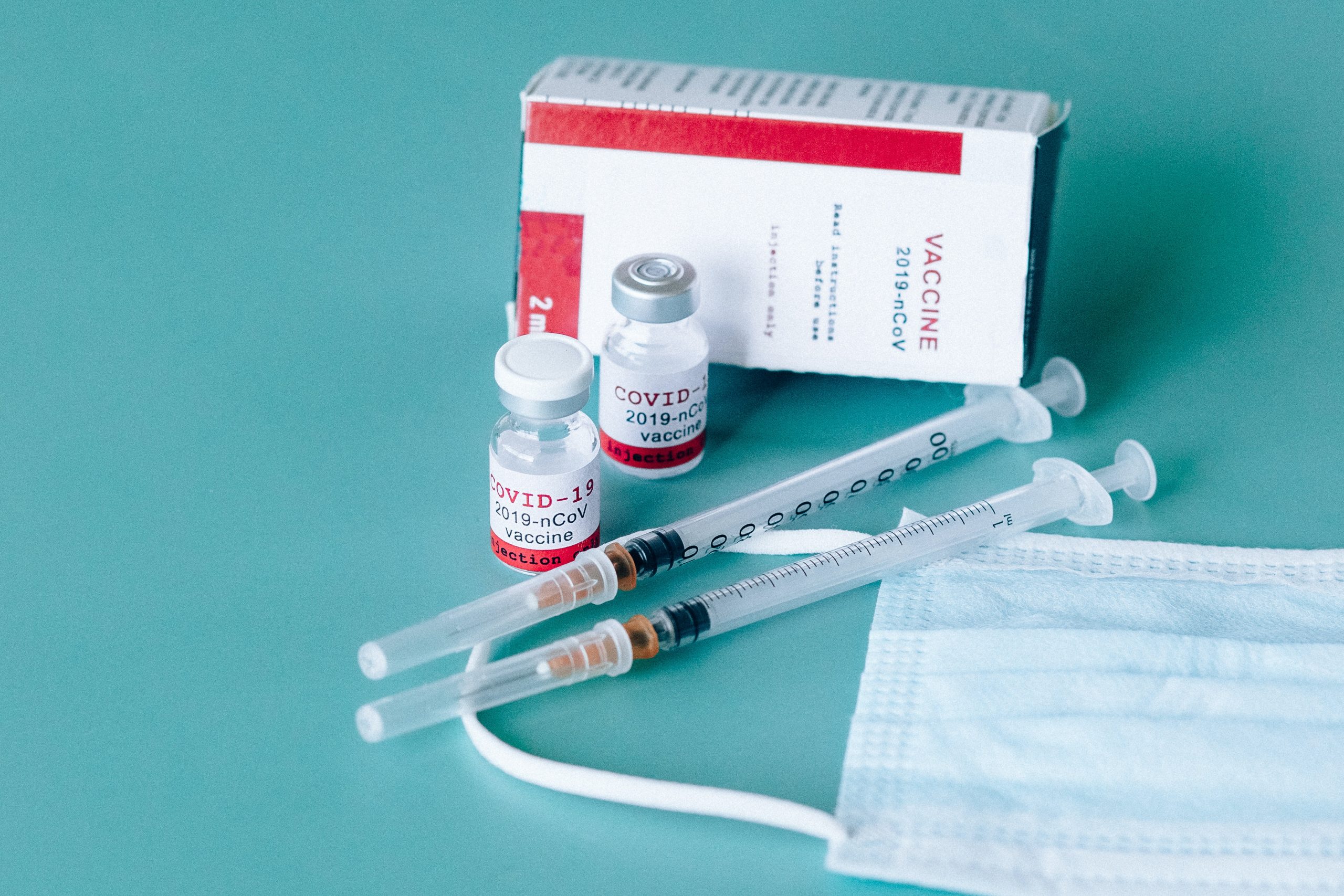We’ve all learned a lot in 2020, but are we prepared for what 2021 will bring? The change of the calendar won’t make the pandemic go away, but you can prepare your medical practice.
Continue readingStrategies for Successful Implementation of Mandatory Vaccine Policy for Your Workforce (Part 1)
Read an article by Board Certified Healthcare Lawyer Karen Davila on mandatory vaccination policies in healthcare businesses.
Continue readingWhen Does a Gift Become a Kickback?
There’s a fine line between gifts and kickbacks within the healthcare setting. Read about the differences and how to properly plan your healthcare marketing in your business.
Continue readingAttorney Zach Simpson Joins Florida Healthcare Law Firm in Delray Beach, Florida
 Florida Healthcare Law Firms adds experienced attorney Zach Simpson to the team to assist with pharmacy law, imaging center compliance, as well as chiropractic law, healthcare business development and contract negotiation.
Florida Healthcare Law Firms adds experienced attorney Zach Simpson to the team to assist with pharmacy law, imaging center compliance, as well as chiropractic law, healthcare business development and contract negotiation.
Florida Healthcare Law Firm has announced that they have added Zach Simpson to the team. Zach brings a wealth of healthcare business experience in settings such as private medical practices, large law firms and healthcare management companies. Zach specializes in areas including operations, process, procedures, rules, regulations, management, organization, compliance, analytics, and problem solving. He’s also worked on physician dispensing programs and within numerous medical systems mastering programs like Abbadox, PACS, K-Pacs, Carestream, Merge, and Telax to improve the efficiency of medical centers’ day-to-day activities.
“Now more than ever, healthcare businesses are taking the time to attend to important tasks like processes, policies and procedures. The ones who unfortunately closed during COVID had some ‘downtime’ to focus on what to do better when reopening. Zach’s wide variety of experience in medical offices brings first hand knowledge on how to prepare and how to run things smoothly. As we all have adapted to a ‘new normal,’ Zach is on board to help with business management and development,” Florida Healthcare Law Firm COO Autumn Piccolo says. Founder and President, Jeff Cohen, goes on to say that, “We help you with the business operation side so that you can focus on what you do best, care for patients. Zach’s organizational skills and leadership are a great addition for current and future clients. His analytical and negotiation skills will absolutely benefit healthcare business owners.”Continue reading
The Top 5 Legal Concerns When Developing a Healthcare App
 By: Steven Boyne
By: Steven Boyne
Today no one can live without a smart phone, and we interact with the rest of the world through a series of apps that reside on our handheld devices. From the healthcare perspective many large healthcare institutions and private companies have developed a myriad of healthcare related apps that currently reside in Apple’s App Store and Googles Play Store. You can measure your heart rate, get clinical advice, view your records, check on your health insurance coverage, make appointments and virtually interact with many different types of healthcare providers. But even in today’s hyper-electronic society it took COVID-19 to really cause an explosion in telehealth, so what does that tell us? There is a lot more room for expanding electronic interactions with patients and clients through Apps. So, here are the top five legal concerns should you address when you develop a Healthcare App:Continue reading
Considering Compliance in Out of Network Physician Owned Specialty Hospitals
 By: Jacqueline Bain
By: Jacqueline Bain
Out of network physician owned specialty hospitals are unique in that there are less stringent legal requirements on the facility, but patient care obligations remain the same. This means that patient care must be prioritized over profits and all actions taken by the hospital and any physician investor must showcase that order of priority.
Given the amount of scrutiny placed in physician owned specialty hospitals in the past two decades, these facilities are well served to identify and implement a process to remedy compliance concerns. Even when a facility does not submit claims to any Federal health insurance provider and is out of network with all commercial insurance companies, it is still required to follow the laws of the state where it is located.
The best plan for surviving scrutiny in such situations is to have a plan. Proactively seek out applicable laws and regulations, and determine how your hospital will abide by them. Compliance can be tailored to fit your facility.
Overutilization and Self-Referrals
A physician who shares ownership in a hospital may have a financial incentive to refer patients for services if he or she receives a percentage of the revenue generated. Laws including the Federal Stark Law and Anti-Kickback Statute were promulgated to combat unnecessary referrals. A 2003 study by the Department of Health and Human Services concluded that physician-investor referrals to hospitals in which they have an investment interest are similar to those physicians without investment interests. Nevertheless, the fear of overutilization and unnecessary self referral remains at the forefront of the regulators’ minds at both the State and Federal level.Continue reading
The Debate Over Physician Owned Hospitals
 By: Dave Davidson
By: Dave Davidson
The debate over the pro’s and con’s of physician-owned hospitals has been raging for decades. Physician-owners say their hospitals are more patient-focused, provide higher quality care, obtain better outcomes and therefore receive higher patient satisfaction scores. They also point out their convenience and efficiency.
Opponents argue that physician-ownership leads to overutilization and cherry-picking of only the best patients. The less-desirable patients (both clinically and financially) are then left to be taken care of by the community hospitals. For those reasons, both the American Hospital Association and the Federation of American Hospitals remain strongly opposed to physician-owned hospitals.
Federally, the Stark Law includes an exception which allows a physician to refer patients to a hospital in which the physician has an ownership interest, so long as the ownership interest is in the entire hospital, and not just a subdivision of the hospital. However, in 2010, the federal government weighed in again on the issue, and passed the Affordable Care Act (ACA), which includes provisions which (i) restrict physician referrals to hospitals in which they hold an ownership interest; (ii) restrict any increases in physician-ownership of a hospital; and (iii) restrict expansion of physician-owned hospital facilities. CMS has granted exceptions to these restrictions, but those have been limited to rural hospitals and high Medicaid hospitals, and attempts to amend the law have failed.Continue reading
Physician Owned Hospitals Looming Large in Florida
 By: Jeff Cohen
By: Jeff Cohen
Florida may become the “next Texas” on the issue of physician owned specialty hospitals. “Next Texas,” since there are a number of examples where the concept launched (and also flopped). Done right, such facilities could be a better fit for many patients, depending of course on patient co morbidity issues. In theory, they would be the perfect bridge between surgery centers and regular acute care hospitals. But the ability of such specialty focused care suggests a better staffing model and more targeted and efficient overhead, instead of the broad-based overhead of an acute care hospital at is spread out aver all cases, including those where overhead allocation is viewed as “just an expense.” Continue reading
The 3 Knocks Coming to your Healthcare Business’ Door Post-Pandemic: The Lawyers, The Regulators; and The Auditors
 By: Steven Boyne
By: Steven Boyne
When COVID-19 passes and the world begins to return to normal, you can be guaranteed that many of your old “friends” will come to visit you. To minimize future liability, pain and time, you should be preparing today for tomorrow’s visitors:
The Lawyers. Lawyers come in many flavors, and can bring good or bad news. Depending on your initial reaction to the pandemic, and your subsequent actions as the panic started to die down you may see three types of lawyers: (1) Those that represent past or present employees who have lost their job or contracted COVID-19; (2) Those that represent patients who claim malpractice based on the care that you did or did not deliver, and also those patients who assert that they contracted COVID-19 at your office; and finally (3) Those that represent creditors or debtors of your practice. The actions you should take today are many and varied and beyond the scope of this overview, however, you should be asking the following questions of yourself: (i) did you file a claim for business interruption despite the fact that your insurance broker said you were wasting your time? (ii) does your malpractice carrier cover you for liability outside of the normal scope of providing care? (iii) are your documenting your actions throughout the pandemic to demonstrate that you were acting reasonably at a time when you did not have all the facts? (iv) did you look at your business insurance policies for coverage for employee claims, or workers comp claims, or OSHA claims? (v) did you research what other similarly situated companies are doing, as you will most likely be held to the same standards? (vi) did you follow guidance from State and Federal entities? and (vii) did you provide notice during the pandemic to debtors or other parties who have breached their obligations?Continue reading
A Few Nuances to the Paycheck Protection Program Established Pursuant to the CARES Act
 By: Susan St. John
By: Susan St. John
The Paycheck Protection Program under the CARES Act (the “Act”) allows a small business to apply for a low interest rate loan to sustain the business during the economic disruption caused by COVID-19. This program focuses on payroll costs as opposed to revenues of the small business. Allowable uses of the PPP loan funds include the following:
- Payroll costs;
- costs related to the continuation of group health care benefits during periods of paid sick, medical, or family leave, and insurance premiums;
- employee salaries, commissions, or similar compensating;
- payments of interest on any mortgage obligation (which shall not include any prepayment of or payment of principal on a mortgage obligation);
- rent (including rent under a lease agreement);
- utilities; and
- interest on any other debt obligations that were incurred before the covered period.
The Act defines payroll costs as follows:
- the sum of payments of any compensation with respect to employees that is a:
- salary, wage, commission, or similar compensation;
- payment of cash tip or equivalent;
- payment for vacation, parental, family, medical, or sick leave;
- allowance for dismissal or separation;
- payment required for the provision of group health care benefits, including insurance benefits;
- payment of any retirement benefit; or
- payment of State or local tax assessed on the compensation or employees; and
- the sum of payments of any compensation to or income of a sole proprietor or independent contractor that is a wage, commission, income, net earnings from self-employment, or similar compensation and that is in an amount that is not more than $100,000 in 1 year, as prorated for the covered period; and shall not include the compensation of an individual employee in excess of an annual salary of $100,000, as prorated for the covered period; taxes imposed or withheld under chapters 21, 22, or 24 of the Internal Revenue Code for the covered period; compensation for employees outside of the US; qualified sick leave wages for which credit is allowed under the Families First Coronavirus Response Act; or qualified family leave wages for which credit is allowed under the Families First Coronavirus Response Act.









